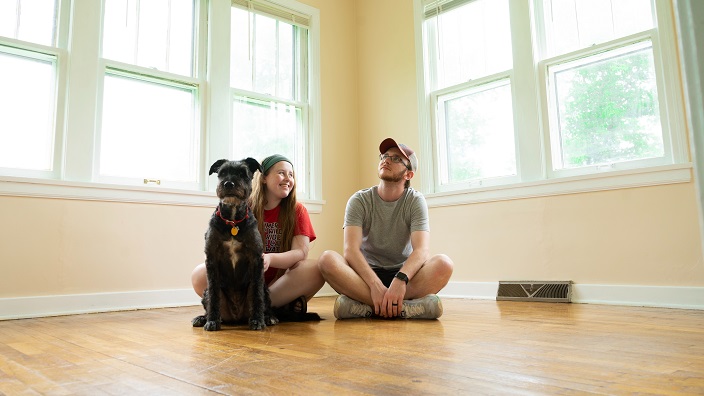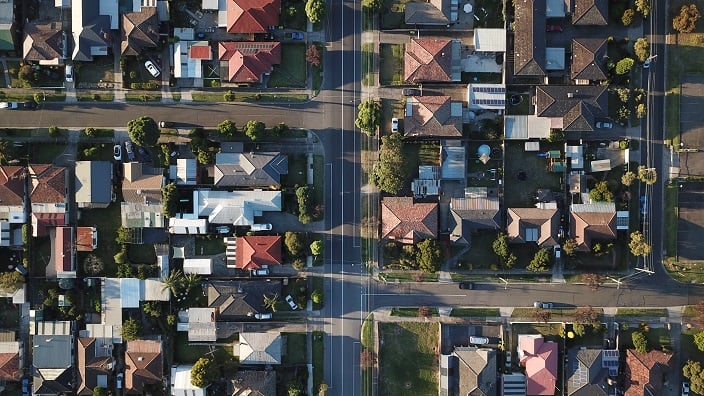 Ah, wouldn’t we all love a crystal ball which could tell us when was a good time to buy property? While buying your first or next home is always going to seem like a huge decision, there are tell-tale markers to look for which could clue you in on when to buy property.
Ah, wouldn’t we all love a crystal ball which could tell us when was a good time to buy property? While buying your first or next home is always going to seem like a huge decision, there are tell-tale markers to look for which could clue you in on when to buy property.
Firstly, we must divide the question into two. It’s important to understand all the personal ingredients that may go into making a perfect time for you to buy property, but we also need to consider the larger market factors which may influence the timing of your property purchase.
When is the right time for me to buy a home?
Of course, we all know that life works in unpredictable ways, so while there is no perfect time or set of circumstances that can ensure successful purchase of a home that will provide the greatest yield over time, there are some things we can tick off to ensure we’re buying property from a stable and low-risk financial position.
Career and Job Status
There’s no hard and fast rule around what type of job you need to be doing or what level you should be at career wise before buying a home. However, you need to consider whether the income you’re currently earning is stable, or whether it is likely to grow or decline in the future. Having stable income means you’ll be able to effectively save for a home deposit and meet the loan requirements for your property purchase.
Relationship Status
There are two schools of thought, here. Some might say you eliminate the risk of messy financial situations by buying property with a partner by buying alone, and some might say you should wait until you can buy with your significant other. All we’ll say is that if you’re at a time in your life where you’ve arrived in a stable relationship, this gives you the advantage to double your earning, saving and borrowing power, meaning you could potentially buy property sooner.
Credit Rating
Are the ghosts of your spending past still haunting you? The vast majority of us will need to take out a Home Loan to finance buying property, and if your credit score is healthy, you are good to go. If not, you might find you have some work to do to bring your score back up before lenders will consider you for a home loan. Check out our previously published piece on improving your credit score here.
Spending VS Saving
You’ll need to examine your current relationship with money and determine whether you’re more of a spender or saver.
While there’s nothing wrong with enjoying your hard-earned income, buying property isn’t cheap. By moving more towards the saving end of the spectrum, you’ll not only be able to arrive at your deposit target sooner, but you’ll be getting good practice for making ongoing repayments over the life of your home loan. Plus, being able to balance your budget makes you a more attractive prospect for lenders when applying for a home loan.
Greater Bank
Check out our piece on improving your chances for a home loan here, and check out our Budgeting Calculator for a helping hand.
How Much Money Should I Have Before Buying A House?
Once you’ve set your mind on buying, it’s important to get a clear picture on the up-front costs you’ll need to be able to cover before you get the keys. There’s your deposit amount (typically between 5 – 20% of purchase price), Lender’s Mortgage Insurance (LMI) for when you’re borrowing a larger amount of the purchase price, Estate Agent fees, Legal and Conveyancing fees, Inspection fees and Stamp Duty costs. Seems like a lot, but our guide to the up-front costs of buying a home can help bring you up to speed.
What does your future hold?
You might be solely focussing on buying property as the next big milestone in your life, but what else is potentially on the horizon? Are you expecting to start a family soon? Is your working situation likely to change? Are your parents approaching retirement or likely to enter aged care anytime soon? These may seem like silly questions now, but they’re all things which may have a sudden and ongoing impact on your household budget, and as such are worth factoring into the timing of your decision of buying a home.
Is now a good time to buy a home?
There’s a reason why search volume around this topic is always high – it’s because market factors outside an individual’s control are always changing. While many traditional data models have been turned inside out by the COVID-19 pandemic, here are some basic guidelines to help you on your path to purchase.
Supply and Demand – when is best?
In examining real estate data between January 2000 and December 2009, Core Logic (RP Data) found that the highest volume of properties were sold between March and May. This is because buyers have used the end of year holiday period to prepare themselves, and enter the market in the new year resolute on making a purchase. So, this time of year is one in which demand is higher than supply, meaning it could be a time to avoid.

The RP Data also showed that most homes are listed for sale in the August – November period, as sellers look to take advantage of Spring conditions to sell. This indicates a higher chance of supply exceeding demand, which is called a ‘buyer’s market’. This time of year could be the season to aim for when looking to buy your home.
Local market conditions
It’s important to understand that whilst the broader Australian real-estate market could present with one set of conditions, local markets may not reflect this, or vice versa. When looking for the best time to buy, you should probably pay closer attention to the market conditions local to you. For example, right now in Newcastle and The Hunter, as with regions across NSW, there is an overall housing shortage. This is largely as a result of many urban NSW residents making a regional move after being able to work remotely during the pandemic. This shortage of supply has led to significant house price growth, meaning that this region is currently a ‘seller’s market’.
By taking into account the conditions of your local real estate market, you’re able to detect whether conditions are ripe to buy, whether you may need to hold off on your purchase, or perhaps even look elsewhere.
Availability of financing
Finally, your ability to secure the financing you need to buy your property will certainly effect the timing of your purchase. Right now, Home Loan interest rates are historically low, which may seem like the perfect time to borrow. However, with house prices being so high, and national economic conditions hardly looking like improving over the next few years, you may need to decide whether locking in a fixed rate for a number of years could serve as protection against sudden interest rate rises that you would otherwise face as a variable rate borrower.
With all this being said – a common mistake many borrowers make is simply looking at buying property as the event of making the sale, rather than the decades-long process of paying the house off and trying to make a profit. While there will always be ways you can best prepare yourself for the event of buying a property, and time this event nicely, the most important part of the process is continuing to pay down your loan, building equity while ensuring your property is maintained to preserve its value.
What do you need to buy a house for the first time?
In terms of things you actually need to buy for the first time, it really comes down to your deposit amount, and your current financial situation.
If you're able to save a deposit amount that's going to allow you to buy a home, regardless of whether you're able to save the elusive 20% amount, then that's half the battle won.
If your income level, your expenses, your debt-to-income ratio and your credit score are all favourable, then that helps as well.
And finally, it's important to take into account the associated costs of buying a home above and beyond your deposit amount. Think things like legal/conveyancing fees, insurance, any inspections that you need, and stamp duty.
This article is intended to provide general information of an educational nature only. Information in this article is current as at the date of publication.


